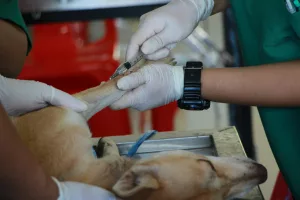Have you ever noticed your cat making a sound that is more of a chirp than a traditional meow? This unique vocalization may leave you wondering what it means and why your feline friend is using it. In the world of feline communication, chirping meows serve an important purpose and convey specific messages that cat owners should be aware of. Understanding a cat’s vocal language is like learning a new dialect. While it may seem puzzling at first, it can offer profound insights into what your cat is trying to communicate. Let’s dive deeper into why cats make this chirping noise, what it signifies, and how you can respond.
Understanding Feline Communication
Cats communicate through a variety of vocalizations, body language, and behaviors. Meowing is one of the most common ways that cats express themselves and interact with humans. However, not all meows are created equal, and the chirping sound that some cats make is a distinct form of communication that conveys different meanings.
Common Types of Cat Vocalizations
- Standard Meow: Used for everyday communication with humans, indicating needs like hunger or wanting to go outside.
- Purring: Typically signals contentment and relaxation, but can sometimes indicate discomfort.
- Hissing and Growling: Defensive sounds indicating fear, anger, or territorial threats.
- Trilling and Chirping: Often used in specific contexts as a way to convey excitement or affection.
Each vocalization serves a particular purpose, and understanding these can greatly improve how you respond to your cat’s needs. For instance, while a standard meow might prompt you to check the food bowl, a trill or chirp might have you peering outside to see what has captured your cat’s attention.
Body Language and Context
Body language plays a crucial role in understanding these vocalizations. For instance, a cat that is chirping while its eyes are wide and pupils are dilated might be excited about something it sees outside. An understanding of these cues can provide a comprehensive view of your cat’s emotional state.
- Tail Position: A high tail while chirping often indicates excitement or curiosity. Conversely, a low or tucked tail might suggest uncertainty or fear.
- Ear Position: Forward-facing ears usually signal interest, while flattened ears can be a sign of anxiety or aggression.
- Whiskers: Forward-facing whiskers indicate curiosity and engagement, while whiskers pulled back can suggest stress.
By paying attention to these signals, you can gauge whether your cat’s chirping is a sign of joy, fear, or something else entirely.
Reasons for Chirping Meows
Chirping meows are often associated with excitement, curiosity, and anticipation. Cats may chirp when they spot birds or other prey outside, expressing their hunting instincts. Additionally, some cats chirp when they are happy to see their owners or when they want attention. This unique vocalization can also be a sign of playfulness and a way for cats to engage with their environment.
Excitement and Hunting Instincts
Example Scenario: Imagine your cat perched by the window, tail twitching, eyes focused on a bird in the yard. Its mouth opens slightly, and it emits a series of rapid, high-pitched sounds — this is the chirp.
Chirping in this context is believed to mimic the call of birds or rodents, a behavior that stems from their innate hunting instincts. It’s a fascinating glimpse into the wild roots still present in domestic cats. This behavior is particularly common in breeds known for their hunting prowess, such as Bengals or Maine Coons.
- Tip: Install a perch near a window where your cat can watch birds safely. Consider placing a bird feeder outside to provide ongoing entertainment.
Attention Seeking and Affection
Example Scenario: You arrive home after a long day, and your cat greets you with chirps instead of meows. This can be an affectionate welcome, demonstrating joy and a desire for your attention.
This behavior is particularly common in cats that have a strong bond with their owners. The chirp acts as a bridge between the wild instinct to hunt and the domestic desire for companionship.
- Tip: Respond to your cat’s chirps with gentle petting or by speaking softly to them. This reinforces their communication and strengthens your bond.
Relationship to Mother-Kitten Communication
Interestingly, chirping meows are reminiscent of the sounds that kittens make when communicating with their mothers. Kittens use a combination of chirps and purrs to signal their needs and maintain contact with their mother. Adult cats may retain this vocalization as a way to express their affection and bond with their human caregivers.
Evolution of Vocal Behaviors from Kittenhood
Kittens are known to chirp and trill when they are in close proximity to their mothers. This communication helps in solidifying the bond and ensures that the mother is aware of her kittens’ needs. As cats mature, they often maintain these sounds, using them with humans who have taken the role of caregiver in their lives.
- Example: A kitten calling for its mother might emit a similar sound to an adult cat chirping for human attention. This evolutionary trait underscores the deep-seated connection between these vocalizations and caregiving relationships.
Understanding this connection can help you interpret your cat’s chirps as a sign of trust and affection. It’s a reminder of the maternal bond and your role as a caregiver in your cat’s life.
Medical Considerations
While chirping meows are typically harmless and natural, it is essential to pay attention to any changes in your cat’s vocalizations. Sudden or persistent changes in meowing patterns could indicate underlying health issues that require veterinary attention. Regular check-ups and monitoring of your cat’s behavior are crucial for maintaining their overall well-being.
When to Consult a Vet
- Changes in Vocal Patterns: If your cat suddenly starts chirping excessively or stops chirping altogether, this could be a red flag.
- Associated Symptoms: Look for other signs of illness, such as lethargy, loss of appetite, or changes in litter box habits.
- Behavioral Changes: If your cat exhibits unusual aggression or withdrawal alongside changes in vocalizations, a vet visit is warranted.
It’s always better to err on the side of caution when it comes to your pet’s health. Regular veterinary visits can help catch potential issues early and ensure your cat remains healthy and happy.
Tips for Engaging with Your Chirping Cat
Understanding the meaning behind your cat’s chirping meows can help strengthen your bond and improve your communication with your feline companion. Here are some practical tips for engaging with your chirping cat:
- Respond to Their Calls: If your cat chirps when they see you, acknowledge them with a gentle voice or petting. This reinforces their communication and builds trust.
- Provide Visual Stimuli: Since chirping can be linked to hunting instincts, give your cat visual entertainment like bird feeders outside a window or interactive toys.
- Play Sessions: Engage in regular play that simulates hunting, such as using a wand toy. This not only satisfies their instincts but also provides valuable exercise.
- Create a Safe Space: Ensure that your cat has a comfortable and secure environment where they can express their natural behaviors without stress.
Additional Engagement Techniques
- Interactive Toys: Invest in toys that mimic prey movement, such as laser pointers or feather wands. These can stimulate the hunting response and provide both physical and mental exercise.
- Training and Tricks: Teach your cat simple tricks that involve responding to chirps, like fetching or jumping through hoops. Positive reinforcement can strengthen their communication skills.
- Environmental Enrichment: Rotate toys and introduce new objects regularly to keep your cat mentally stimulated and prevent boredom.
Common Mistakes and How to Avoid Them
- Ignoring Chirps: Dismissing your cat’s chirps as mere noise can lead to missed opportunities for bonding. Always pay attention to their communication.
- Overlooking Health Changes: Assuming all chirping is benign without considering health changes can overlook serious issues. Stay observant and proactive.
Additional Pitfalls
- Not Providing Enough Stimulation: Cats, especially those that frequently chirp, often need more mental and physical stimulation. Without it, they can become bored or stressed.
- Misinterpreting Sounds: Differentiate between chirps and other vocalizations like growls or hisses, which may indicate stress or aggression.
Case Studies: Real Cat Owners’ Experiences
Case Study 1: Bella’s Bird Watching
Bella, a three-year-old tabby, loves sitting on the windowsill and chirping at the birds in the garden. Her owner, Sarah, noticed that providing a bird feeder outside increased Bella’s engagement and satisfaction. Sarah says, “By installing the bird feeder, I’ve noticed Bella is more active and content. It’s like she has her own TV channel!”
Case Study 2: Max’s Welcome Chirps
Max, a senior Siamese, greets his owner, Tom, with chirps every evening when he returns from work. Tom finds this behavior endearing and has made it a routine to spend the first few minutes after arriving home engaging with Max. Tom shares, “Max’s chirps are my daily dose of happiness. It’s our special way of reconnecting each day.”
Case Study 3: Luna’s Playful Chirps
Luna, a playful Maine Coon, chirps whenever her owner, Jenna, brings out her favorite toy. Jenna has found that these play sessions not only keep Luna entertained but also provide a great way to bond. Jenna notes, “Luna’s chirps during playtime are infectious. It’s our little ritual that I look forward to every day.”
By recognizing the context and possible reasons for this unique vocalization, you can better respond to your cat’s needs and provide them with the care and attention they deserve. Understanding your cat’s chirps opens a window into their world, allowing you to meet their needs more effectively and nurture the special bond you share.



